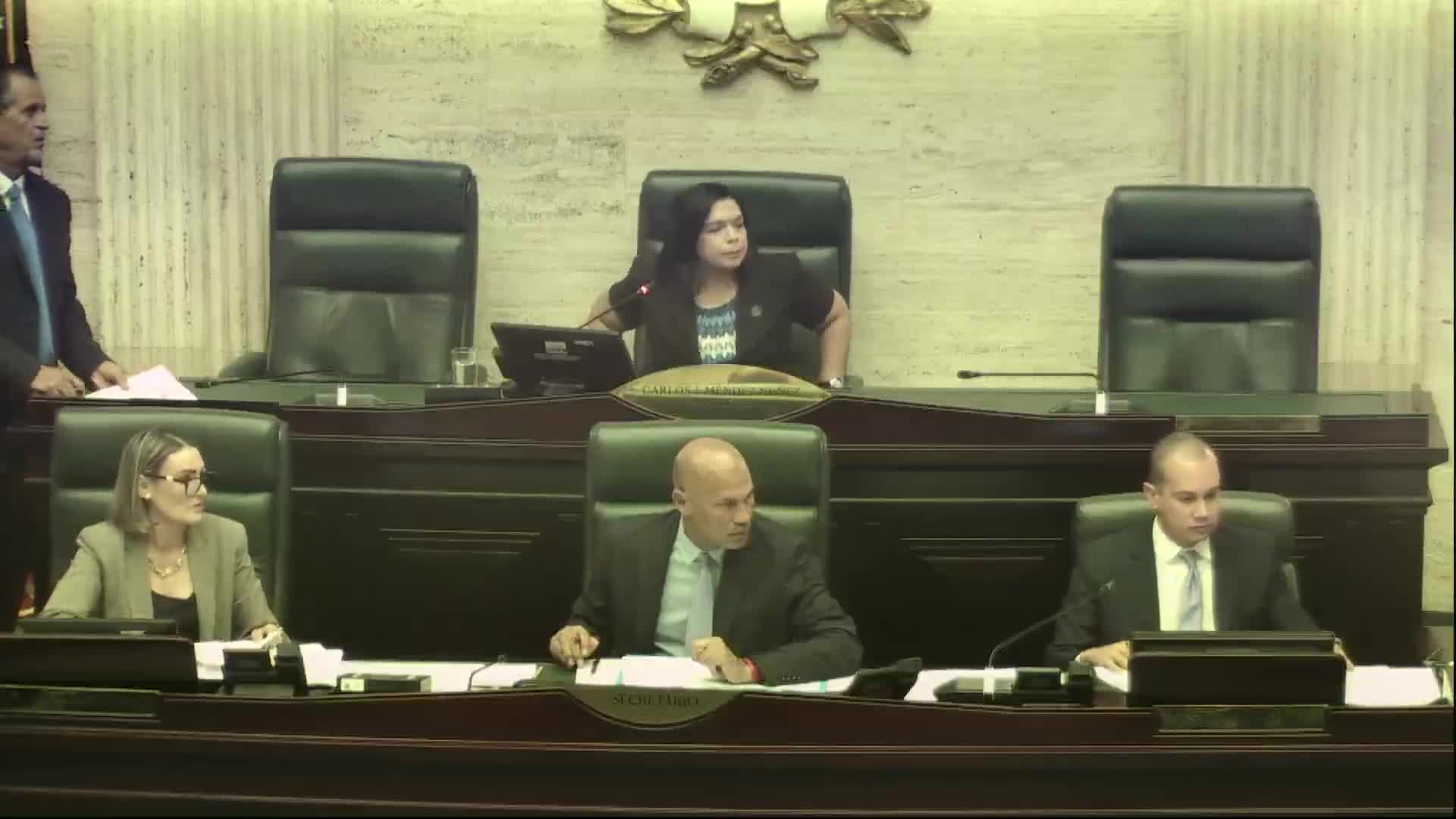Puerto Rico Legislative Assembly Debates RC 188 and Approval of Calendar Projects
September 29, 2025 | House of Representatives, House, Committees, Legislative, Puerto Rico
This article was created by AI summarizing key points discussed. AI makes mistakes, so for full details and context, please refer to the video of the full meeting. Please report any errors so we can fix them. Report an error »

In the heart of Puerto Rico's legislative chamber, tensions ran high as representatives gathered to discuss pressing matters on September 29, 2025. The atmosphere was charged with urgency as lawmakers navigated through a series of contentious issues, including the controversial proposal to revoke security details for former Governor Wanda Vázquez.
The session began with a call to order, but quickly shifted focus as Representative Héctor Ferrer raised a point of order, seeking to address the resolution RCC 188. His request was met with resistance, as the presiding officer reminded him that the assembly was currently engaged in the approval of the day’s special calendar, not in discussions about discharging measures. This procedural clash highlighted the ongoing struggle within the assembly, as members grappled with the rules governing their discussions.
As the meeting progressed, the assembly moved through various legislative projects, including the approval of amendments to Project 246, which aimed to address misuse of digital platforms. The proposed changes included penalties for individuals who knowingly filed false reports, a move seen as necessary to protect vulnerable populations and ensure responsible use of police resources.
However, the underlying tension regarding Vázquez's security detail loomed large. Ferrer passionately argued that it was unacceptable for taxpayers to fund her privileges, especially in light of her previous legal troubles. His remarks sparked a heated debate, with representatives divided over the appropriateness of continuing such benefits for a figure embroiled in corruption allegations.
The discussion revealed deeper divisions within the assembly, as some members accused their colleagues of avoiding accountability and failing to confront uncomfortable truths. The clash of opinions underscored the complexities of governance in Puerto Rico, where political loyalties often intersect with ethical considerations.
As the session drew to a close, the assembly faced the challenge of reconciling its legislative duties with the pressing moral questions raised during the discussions. The outcome of these debates will likely resonate beyond the chamber walls, influencing public perception and the future of governance in Puerto Rico. The meeting served as a reminder of the delicate balance between political procedure and the ethical responsibilities of elected officials, leaving many to wonder how these issues will unfold in the coming days.
The session began with a call to order, but quickly shifted focus as Representative Héctor Ferrer raised a point of order, seeking to address the resolution RCC 188. His request was met with resistance, as the presiding officer reminded him that the assembly was currently engaged in the approval of the day’s special calendar, not in discussions about discharging measures. This procedural clash highlighted the ongoing struggle within the assembly, as members grappled with the rules governing their discussions.
As the meeting progressed, the assembly moved through various legislative projects, including the approval of amendments to Project 246, which aimed to address misuse of digital platforms. The proposed changes included penalties for individuals who knowingly filed false reports, a move seen as necessary to protect vulnerable populations and ensure responsible use of police resources.
However, the underlying tension regarding Vázquez's security detail loomed large. Ferrer passionately argued that it was unacceptable for taxpayers to fund her privileges, especially in light of her previous legal troubles. His remarks sparked a heated debate, with representatives divided over the appropriateness of continuing such benefits for a figure embroiled in corruption allegations.
The discussion revealed deeper divisions within the assembly, as some members accused their colleagues of avoiding accountability and failing to confront uncomfortable truths. The clash of opinions underscored the complexities of governance in Puerto Rico, where political loyalties often intersect with ethical considerations.
As the session drew to a close, the assembly faced the challenge of reconciling its legislative duties with the pressing moral questions raised during the discussions. The outcome of these debates will likely resonate beyond the chamber walls, influencing public perception and the future of governance in Puerto Rico. The meeting served as a reminder of the delicate balance between political procedure and the ethical responsibilities of elected officials, leaving many to wonder how these issues will unfold in the coming days.
View full meeting
This article is based on a recent meeting—watch the full video and explore the complete transcript for deeper insights into the discussion.
View full meeting